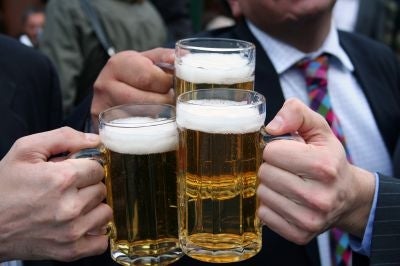German beer sales at 20-year low: statistics

Your support helps us to tell the story
From reproductive rights to climate change to Big Tech, The Independent is on the ground when the story is developing. Whether it's investigating the financials of Elon Musk's pro-Trump PAC or producing our latest documentary, 'The A Word', which shines a light on the American women fighting for reproductive rights, we know how important it is to parse out the facts from the messaging.
At such a critical moment in US history, we need reporters on the ground. Your donation allows us to keep sending journalists to speak to both sides of the story.
The Independent is trusted by Americans across the entire political spectrum. And unlike many other quality news outlets, we choose not to lock Americans out of our reporting and analysis with paywalls. We believe quality journalism should be available to everyone, paid for by those who can afford it.
Your support makes all the difference.Germans may be famous for their beer, but domestic sales of the amber nectar slumped last year to their lowest level since 1989, according to official statistics published on Thursday.
Sales of German beer, which include the world-famous Becks, Warsteiner and Bitburger, dropped to just under 100 hectolitres (2.2 billion gallons) in 2009, a fall of 2.8 percent on the previous year.
There has been a steady downward trend in beer sales in Germany, with a small blip in 2006, when the football World Cup, hosted by Germany, boosted consumption.
Peter Hahn, from the German Brewers Federation, said he hoped the World Cup in South Africa this year, would once again spur Germans to enjoy a few ales.
"We hope that the weather this year will again play ball, that Germany does well at the World Cup and that plenty of people go to the pub or beer garden to watch the matches with a good beer," Hahn said.
The federation blamed the desperate economic situation in Germany last year for the decline. Germany, Europe's top economy, suffered a five percent contraction in 2009, the worst slump since World War II.
A longer-term trend towards less manual work and more office-based employment had also reduced Germans' after-hours thirst, the federation said.
ric/stu/nh
Join our commenting forum
Join thought-provoking conversations, follow other Independent readers and see their replies
Comments